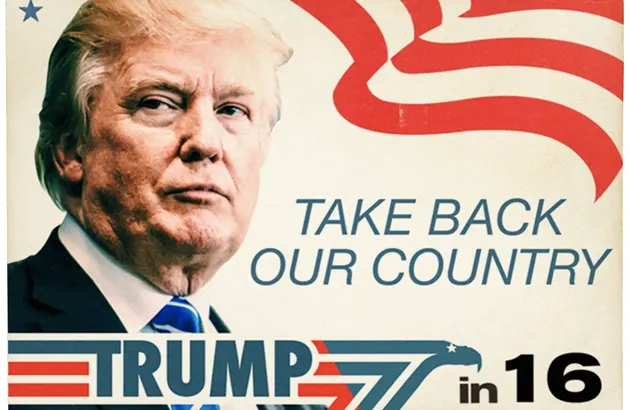The phrase “take our country back” is often employed as a rallying cry aimed at mobilizing voters around the idea of restoring a perceived lost status or set of values.
The phrase is intentionally vague and emotionally charged, allowing it to resonate with a broad audience who may feel disenfranchised or marginalized by current political or economic conditions.
However, its ambiguity can also make it a polarizing term, as it can be interpreted in various ways—ranging from a call for returning to certain policy stances to, at times, veiled ethno-nationalism or reactionary conservatism.
More on “Take Our Country Back”
A defiant pledge that has become a staple of some Republicans’ stump speeches. Though Democrats have criticized it for being a racially coded dog whistle, some of their party’s candidates have said it, too.
In a July 2015 speech in Phoenix, at the height of controversy over his remarks on illegal immigration, Donald Trump asserted: “We have to take back the heart of our country.” When Rand Paul had announced his candidacy a few months earlier, he’d said, “We have come to take our country back.” Former Texas governor Rick Perry and 2008 vice-presidential nominee have deployed it as well. And Hank Williams Jr., an outspoken critic of President Obama, wrote a song called “Take Back Our Country.”
In his book Wing Nuts: Extremism in the Age of Obama, Daily Beast editor in chief John Avlon said the slogan—common at tea party rallies—has a racial connotation. He notes that the white-supremacist British National Party’s “We Want Our Country Back” slogan is used “coincidentally but perhaps not incidentally.”
“This desire to take the country back is combined with an idealized vision of America’s past, a more pastoral time of small-town values and small government,” Avlon wrote. “It is unspoken that this was a largely white America.” When he was Obama’s attorney general, Eric Holder complained to ABC News: “There’s a certain level of vehemence, it seems to me, that’s directed at me [and] directed at the president. You know, people talking about taking their country back. . . . There’s a certain racial component to this for some people.”
Yet a surprising number of Democrats have used the phrase over the years. McClatchy’s Lesley Clark found examples of Hillary Clinton, Minnesota senator Al Franken, Vice President Joe Biden as well as Obama himself invoking it (the latter at a 2007 “Take Back America” conference). And Democratic presidential hopeful Howard Dean even wrote a 2004 book, You Have the Power: How to Take Back Our Country and Restore Democracy in America.
From Doubletalk © 2016 Chuck McCutcheon and David Mark.

Use of “Take Our Country Back” in a sentence
- The opposition party launched their campaign with the slogan “Take Our Country Back,” aiming to galvanize voters who were dissatisfied with the current administration’s policies.
- Critics argue that the phrase “Take Our Country Back” plays on nostalgia for a past that never truly existed, and can be interpreted as a dog whistle for more exclusionary forms of nationalism.
- In an effort to reclaim the phrase from its more divisive interpretations, some progressive groups have begun using “Take Our Country Back” to signify a return to values like inclusivity, social justice, and environmental responsibility.